Description
Introduction
Azmasol HFA belongs to a group of medicines called fast-acting bronchodilators or “relievers”. It’s used to treat the symptoms of asthma and chronic obstructive pulmonary disease (COPD) such as coughing, wheezing and feeling short of breath. You can take Azmasol HFA with or without food. The dose will depend on your condition and how your respond to the medicine. Try to take it at the same time each day. It’s important to keep taking this medicine until your doctor tells you not to. Use this medicine regularly to get the most benefit from it even if you feel well. Azmasol HFA is generally safe and effective but some common side effects include tremor, headache. fast heart rate, and muscle cramps. These side effects aren’t often dangerous and they should gradually improve as your body gets used to this medicine. There are other, rarer, side effects and you should call your doctor straight away if you get chest pain, a very bad headache or very bad dizziness. Before using Azmasol HFAl, you should tell your doctor if you have high blood pressure, an overactive thyroid gland, a history of heart problems, diabetes or low levels of potassium in your blood to make sure it’s safe. Also make sure your doctor knows if you’re pregnant or breast-feeding before taking this medicine. Because this medicine can make you feel dizzy or shaky, don’t drive, cycle or use tools or machinery until you feel better. And you shouldn’t smoke. Smoking causes damage to your lungs and will make your condition worse.
Uses of Azmasol HFA
- Asthma
- Chronic obstructive pulmonary disease (COPD)
Side effects of Azmasol HFA
- Headache
- Tremor
- Muscle cramp
How to use Azmasol HFA
Check the label for directions before use. Shake the inhaler. While you are breathing in from mouth, press down on the inhaler one time to release the medication and hold your breath for 10 seconds. Repeat until you have inhaled the number of puffs as suggested by the doctor.Afterwards, rinse your mouth thoroughly with water and spit it out.
How Azmasol HFA works
Azmasol HFA is a bronchodilator. It works by relaxing the muscles in the airways and widens airways. This makes breathing easier.
What if you forget to take Azmasol HFA?
If you miss a dose of Azmasol HFA, take it as soon as possible. However, if it is almost time for your next dose, skip the missed dose and go back to your regular schedule. Do not double the dose.
 Quick Tips
Quick Tips- Azmasol HFA is used to relieve symptoms of asthma and chronic obstructive pulmonary disease (COPD) such as coughing, wheezing and breathlessness.
- The inhalers are called ‘reliever’ inhalers as they give you quick relief from breathing problems.
- Always keep the inhaler upright during loading of the dose and administration steps.
- If you feel a slightly sweet tasting powder in your mouth after inhaling, you have received the dose and the active substance has reached your lungs.
- Always replace the inhaler cap after you have used the inhaler.
- Gargle with warm water after each inhalation to avoid any fungal infections in your mouth and throat.
- Dry mouth may occur as a side effect. Frequent mouth rinses, good oral hygiene, increased water intake and sugarless candy may help.
- If you need to use Azmasol HFA more than 3 times a week, it could be a sign that your breathing problem is not well controlled. Talk to your doctor about it.
- Inform your doctor if you have a history of heart diseases or if you experience heart racing, headache, or chest pain.
 Brief Description
Brief DescriptionIndication
Acute severe asthma, Severe bronchospasm
Administration
Tablet/Syrup: Should be taken on an empty stomach. Take 1 hr before or 2 hr after meals. Aerosol Metered-Dose Inhaler Prime the inhaler before using for the first time and in cases where the inhaler has not been used for >2 weeks by releasing 4 “test sprays” into the air, away from the face Patient instructions for administration Shake well before each use Breathe out fully through the mouth, expelling as much air from your lungs as possible; place the mouthpiece fully into the mouth, holding the inhaler in its upright position and close the lips around it While breathing in deeply and slowly through the mouth, fully depress the top of the metal canister with your index finger Hold your breath as long as possible, up to 10 seconds; before breathing out, remove the inhaler from your mouth and release your finger from the canister If your physician has prescribed additional puffs, wait 1 minute, shake the inhaler again, and repeat steps listed above; replace the cap after use Cleaning To maintain proper use of this product, it is important that the mouthpiece be washed and dried thoroughly at least once a week Keeping the plastic mouthpiece clean is very important to prevent medication buildup and blockage The inhaler may cease to deliver medication if not properly cleaned and air dried thoroughly If the mouthpiece becomes blocked, washing the mouthpiece will remove the blockage Powder Metered-Dose Inhaler Does NOT require priming Do not use with a spacer or volume holding chamber Cleaning Keep clean and dry at all times Never wash or put any part of inhaler in water Routine maintenance not required If the mouthpiece needs cleaning, gently wipe with a dry cloth or tissue as needed
Adult Dose
Oral Acute bronchospasm Adult: 2-4 mg 3 or 4 times daily, up to 8 mg 3 or 4 times daily. As modified-release tab: 8 mg bid. Not to exceed 32 mg/day Elderly: 2 mg 3 or 4 times daily. Inhalation Acute bronchospasm, Intermittent episodes of asthma Adult: As metered-dose aerosol or dry powd inhaler (90 or 100 mcg/actuation): 1 or 2 inhalations (1 ConviCap) as a single dose when required. Not to exceed 12 inhalations/24 hr Chronic maintenance or prophylactic therapy Adult: As metered-dose aerosol or dry powd inhaler (90 or 100 mcg/actuation): 2 inhalations (1 ConviCap) 3-4 times daily. Max: 800 mcg daily. Acute severe asthma Adult: As metered-dose inhaler (100 mcg/actuation) via spacer device: Initially, 4-8 puffs inhaled every 20min for up to 4 hr and then 1-4hrly as required. Max: 10 inhalations. Prophylaxis of exercise-induced bronchospasm Adult: As metered-dose aerosol or dry powd inhaler (90 or 100 mcg/actuation): 2 inhalations (1 ConviCap) 10-15 min prior to exercise. Nebuliser Solution Severe bronchospasm Adult: Via nebuliser: 2.5-5 mg, up to 4 times daily, alternatively, may be given continuously at a rate of 1-2 mg/hr. Reconstitution: Dilute 0.5 mL of soln to a total of 3 mL w/ NaCl 0.9% to prepare a 2.5 mg dose. Respirator Solution 0.5-1.0 ml should be diluted to final volume of 3-4 ml with normal saline for injection. The resulting solution is inhaled from a suitably driven nebulizer until aerosol generation ceases. Should take about 10 minutes. Parenteral Severe bronchospasm Adult: IM/SC: 500 mcg (8 mcg/kg) and repeated 4 hrly as required. Intravenous Severe bronchospasm Adult: As 50 mcg/mL soln: 250 mcg (4 mcg/kg) injected slowly. May be repeated if necessary. As 10 mcg/mL soln: Usual rate of 3-20 mcg/min (0.3-2 mL/min), adjusted according to patient needs. Higher doses may be used in resp failure. Reconstitution: Dilute 5 mL of soln w/ 500 mL NaCl or dextrose inj or other suitable diluents to provide a 10 mcg/mL soln.
Child Dose
Oral Children Acute bronchospasm Tablet Child: 2-6 yr 1-2 mg; >6-12 yr 2 mg; >12 yr 2-4 mg 3 or 4 times daily, up to 8 mg 3 or 4 times daily. Syrup 2 – 6 years: 2.5 ml syrup, 3-4 times daily 6-12 years: 5 ml syrup, 3-4 times daily Over 12 years: 5-10 ml syrup, 3-4 times daily (2-4 mg tablet, 3-4 times daily) Inhalation Acute bronchospasm Child: 4-12 yr 1 inhalationas a single dose, may be increased to 2 inhalations as necessary. Max: 400 mcg daily. Prophylaxis of exercise-induced bronchospasm Child: 4-12 yr 1 inhalation 10-15 min prior to exercise. Nebuliser Solution Severe bronchospasm Child> 4 years: Via nebuliser: 2.5-5 mg, up to 4 times daily, alternatively, may be given continuously at a rate of 1-2 mg/hr. Reconstitution: Dilute 0.5 mL of soln to a total of 3 mL w/ NaCl 0.9% to prepare a 2.5 mg dose. Respirator Solution 0.5-1.0 ml should be diluted to final volume of 3-4 ml with normal saline for injection. The resulting solution is inhaled from a suitably driven nebulizer until aerosol generation ceases. Should take about 10 minutes. Parenteral Severe bronchospasm Child >12 years: IM/SC: 500 mcg (8 mcg/kg) and repeated 4 hrly as required. Intravenous Severe bronchospasm Child >12 years: As 50 mcg/mL soln: 250 mcg (4 mcg/kg) injected slowly. May be repeated if necessary. As 10 mcg/mL soln: Usual rate of 3-20 mcg/min (0.3-2 mL/min), adjusted according to patient needs. Higher doses may be used in resp failure. Reconstitution: Dilute 5 mL of soln w/ 500 mL NaCl or dextrose inj or other suitable diluents to provide a 10 mcg/mL soln.
Contraindication
Salbuatmol inhaler is contraindicated in patients with a history of hypersensitivity to any of its components. Although intravenous Salbutamol, and occasionally Salbutamol tablets, is used in the management of premature labour uncomplicated by conditions such as placenta praevia, ante-partum haemorrhage or toxaemia of pregnancy, Salbutamol inhaler preparations are not appropriate for managing premature labour. Salbutamol preparation should not be used for threatened abortion during the first or second trimesters of pregnancy.
Mode of Action
Salbutamol is a direct-acting sympathomimetic with beta-adrenergic activity and selective action on ?2 receptors, producing bronchodilating effects. It also decreases uterine contractility.
Precaution
Hyperthyroidism, myocardial insufficiency, arrhythmias, susceptibility to QT-interval prolongation, HTN, DM, glaucoma, hypokalaemia, seizure disorder. Renal impairment. Elderly. Pregnancy and lactation. Monitoring Parameters Monitor BP, heart rate, electrolyte and fluid balance; glucose, lactate and K levels. Lactation: Unknown whether drug is excreted in milk; not recommended
Side Effect
>10% Tremor (20%),Nervousness in children aged 2-6 years (20%),Insomnia in children aged 6-12 years receiving 4-12 mg q12hr (11%) 1-10% Nausea (10%),Fever (1.6-9%),Bronchospasm (8%),Vomiting (7%),Headache (4-7%),Dizziness (1-7%),Cough (5%),Allergic reactions (4%),Otitis media (3.3%),Epistaxis in children (3%),Increased appetite (3%),Urinary tract infection (3%),Dry mouth (<3%),Eructation or flatulence (<3%),Increased sweating (<3%),Pain (2.7%),Dyspepsia (1-2%),Hyperactivity (1-2%),Chills (<2%),Lymphadenopathy (<2%),Ocular pruritus (<2%),Sweating (<2%),Conjunctivitis in children aged 2-6 years (1%),Dysphonia (>1%),Flu syndrome,Nervousness <1% Epigastric pain,Epistaxis in adults,Hyperactivity in children Frequency Not Defined Adverse reactions such as hypertension, angina, vertigo, central nervous system stimulation, insomnia, headache, metabolic acidosis, and drying or irritation of oropharynx Hypersensitivity,Hypokalemia,Increased blood glucose levels,Prolonged QT interval and ST-segment depression,Sleeplessness,Tachycardia (incidence varies with formulation) Urticaria, angioedema, rash, bronchospasm, and oropharyngeal edema (rare) Potentially Fatal: Potentially serious hypokalaemia after large doses.
Interaction
Diuretics, corticosteroids and xanthines may augment hypokalaemia. CV effects potentiated by MAOIs, TCAs, sympathomimetics. Increases absorption of sulfamethoxazole when used together. May markedly increase heart rate and BP when used with atomoxetine. Reduces serum levels of digoxin. Hypokalaemia induced by salbutamol increases the risk of digitalis toxicity. BP should be closely monitored if linezolid is used concurrently with salbutamol.


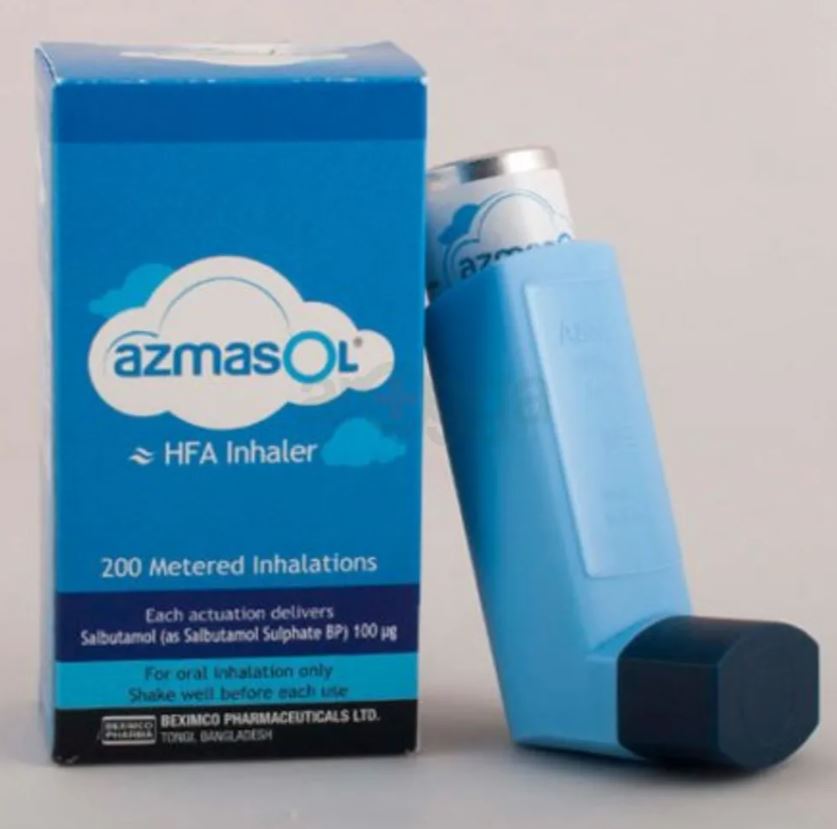
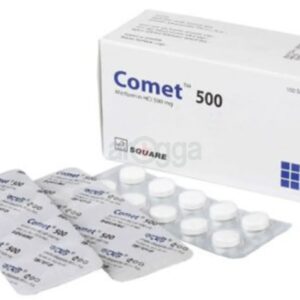


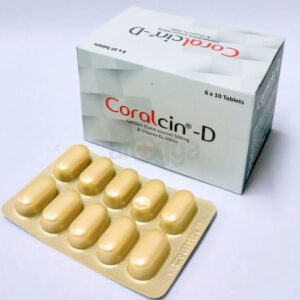
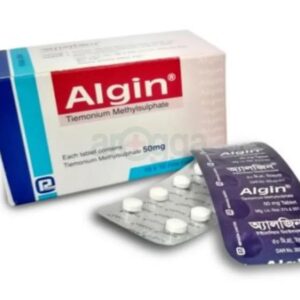
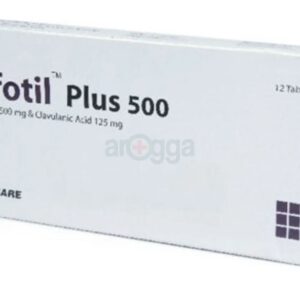
farook
5 star